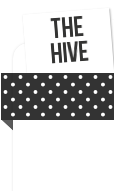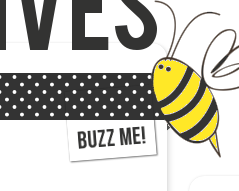I think food allergies are disabling for not only the individual with the allergies, but for friends and family members of the allergic person. Talk about a severe limitation!
So, if food allergies qualify as a disability then how would they be addressed? Remove food from every setting? Never have snacks in classrooms? Only serve certain foods at restaurants and social functions?
While one individual might be severely allergic to one food, another individual is just as severely allergic to a different food. How can you possibly tailor the situation to suit all the needs?
With food allergies, there is no easy answer.
The labeling on foods has been a huge improvement and is one step toward protecting those with allergies. Now I can look at the bottom of an ingredient label and see a notation that says, "contains: milk" or one of the other top allergens. This does simplify shopping and saves time. However, I still have the joy of reading every single label in its entirety for safety's sake.
Foods are also labeled with words such as "processed in a facility that also handles peanuts" or something similar to alert you that the food could be contaminated. In those cases, you have to decide if you want to take that chance, or you can call the company to clarify how the equipment is cleaned between foods or how they work to limit cross-contamination. It's just another way to keep you safe and make you even more paranoid....
But what about small children? It would be nice to come up with a color-coding system to have a small colored bar code under the food label to indicate if any of the top allergens are in a certain food item. If yellow was for peanuts and a food had a yellow stripe under the ingredient label, then a child would know that food was off limits because of his/her peanut allergy.
I think one of the most important aspects of treating food allergies as a disability is by simply educating others regarding allergies. Many are not aware of the vast number of people affected by food allergies. Some do not understand the severity of allergies. And most are not familiar with all the foods that contain a certain ingredient or all the names a milk product or wheat product could fall under.
For instance, I have mentioned my child has a food allergy and the person has responded, "Ohh, they they can't have peanuts, right?" While that is true for us, any food can be an allergic food, and foods other than peanuts and tree nuts can cause severe reactions.
Also, I have called restaurants to talk with a manager or a chef before dining there to make sure that Bee will have some options. I once mentioned that she could not have gluten or wheat and was told that the chicken noodle soup was safe for her. Noodles are made from wheat in most cases, and the individual was not aware of this fact and truly believed noodles were safe for her. In calling another restaurant where I explained her allergies, I was told that several items were safe for her-but they all contained butter. I had to explain to the manager that butter was dairy. How do people in the food industry survive without some basic knowledge?
How wonderful it would be for restaurants to become more aware of food allergies and learn how to accommodate those with allergies.
To address food allergies as a disability, people will need to be educated. They will need to be compassionate and willing to learn. The best way to do this is to make others aware of the allergies and work to educate them yourself. There is now a manager who understands that wheat noodles contain gluten and another manager who has learned that butter is dairy. Food allergic individuals and family members will have to be knowledgeable, but to especially be patient with others until food allergies are more widely acknowledged as commonplace and also as disabling.
Why I'm Glad I Taught Spanish Before Latin
-
I aspire to be a classical homeschooler. Many times we fall short, but my
ultimate goal is to stick closely to the classical model and definitely
includ...
9 years ago













No comments:
Post a Comment
Your comments are sweet as honey! Thanks for visiting the hive!